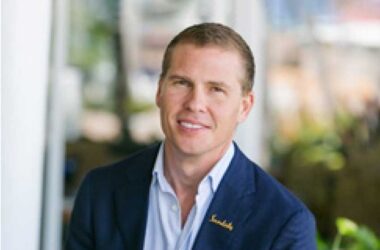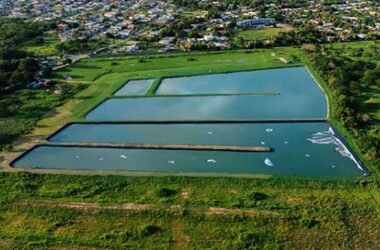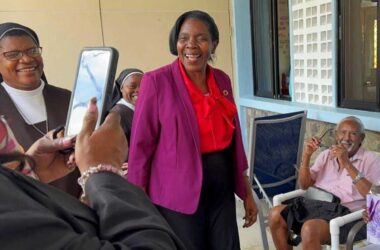
During this year’s Caribbean Infrastructure Forum (CARIF), key figures from the Caribbean and global business community emphasised how sustainable investment translates to economic wins for the private and public sectors.
The event, hosted by New Energy Events with co-title sponsors CIBC and KPMG, featured prominent speakers including Dr. Damie Sinanan from the Caribbean Export Development Agency, Giuseppe Mancinelli from the United Nations Office for Project Services (UNOPS), Kirstin McCarthy from Sandals Resorts International, and Jeremy Superfine from Orchid Development.
Dr. Damie Sinanan, Executive Director of the Caribbean Export Development Agency, highlighted the role of government regulation in promoting sustainable practices in the private sector.
“Government has to play a facilitative role. They have to make it easy for businesses to invest and easy for investors to come in. Governments encouraging investors and encouraging businesses to invest more heavily in sustainability can happen through tax breaks, incentives, or regulation. These are things that governments have to do in order to drive sustainability in the region, and it has to be partnerships between the government and the private sector that is of absolute importance.
He added, “No one can do it alone. The private sector has the drive. The private sector has the resources, but government has to work with them to make sure and facilitate that process.”
Giuseppe Mancinelli, Deputy Director of Latin America and the Caribbean at UNOPS, added that challenges for the public sector include environmental vulnerability, access to finance, and implementation capacity. “You can have the best idea, you can get the financing, but then you have to implement the project,” he said.
Mancinelli also noted partnership as crucial. “It’s not just the UN, but the government and the private sector. It is a collective responsibility. “The moment we’re able to have this partnership, it is better in terms of innovative solutions and knowledge sharing,” he said.
Bringing these concepts to life, Jeremy Superfine, Chief Operations Officer at Orchid Development, showcased how sustainable urban planning through projects like Cricket Square illustrates the profitability and viability of green building practices. Kirstin McCarthy, Corporate Director of Sustainability at Sandals Resorts International, detailed how the company’s sustainability initiatives go beyond environmental conservation to enhance community engagement and business success.
She said Sandals Resorts International’s efforts are not just about conservation but about actively enriching the communities where it operates, proving that environmental responsibility is integral to corporate success.
The discussion, moderated by CIBC Caribbean’s Executive Director of Corporate Banking and Sustainable Finance, Corporate and Investment Banking, Gillian Charles-Gollop, concluded with a robust commitment from attendees to further integrate sustainable practices into their business models and economic development strategies. The widespread commitment affirmed the crucial role of sustainable investment in securing a resilient and prosperous future for the Caribbean.





![Amy Stephen [Photo credit: Community Tourism Agency]](https://thevoiceslu.com/wp-content/uploads/2026/01/Amy-Stephen-feat-380x250.jpg)







